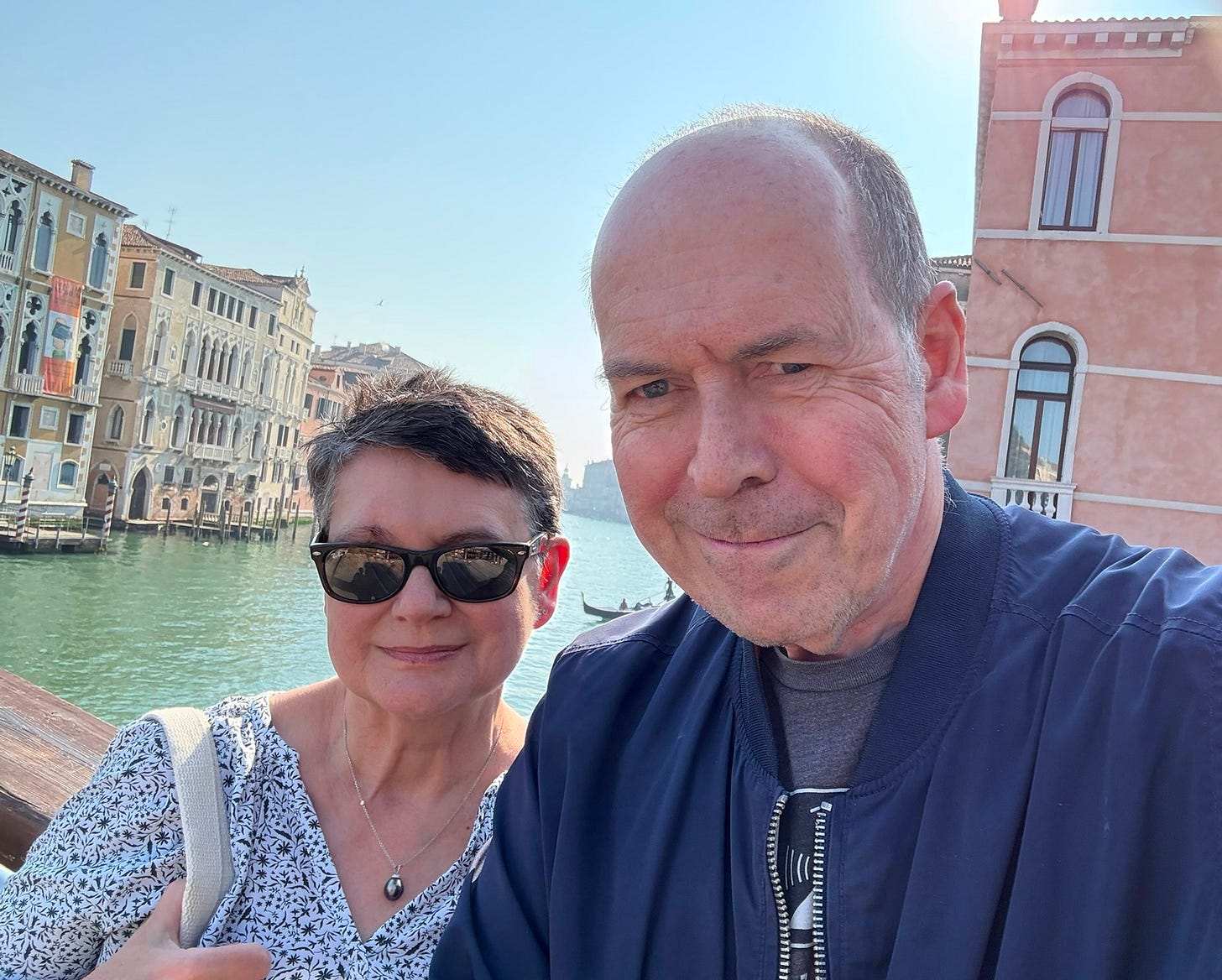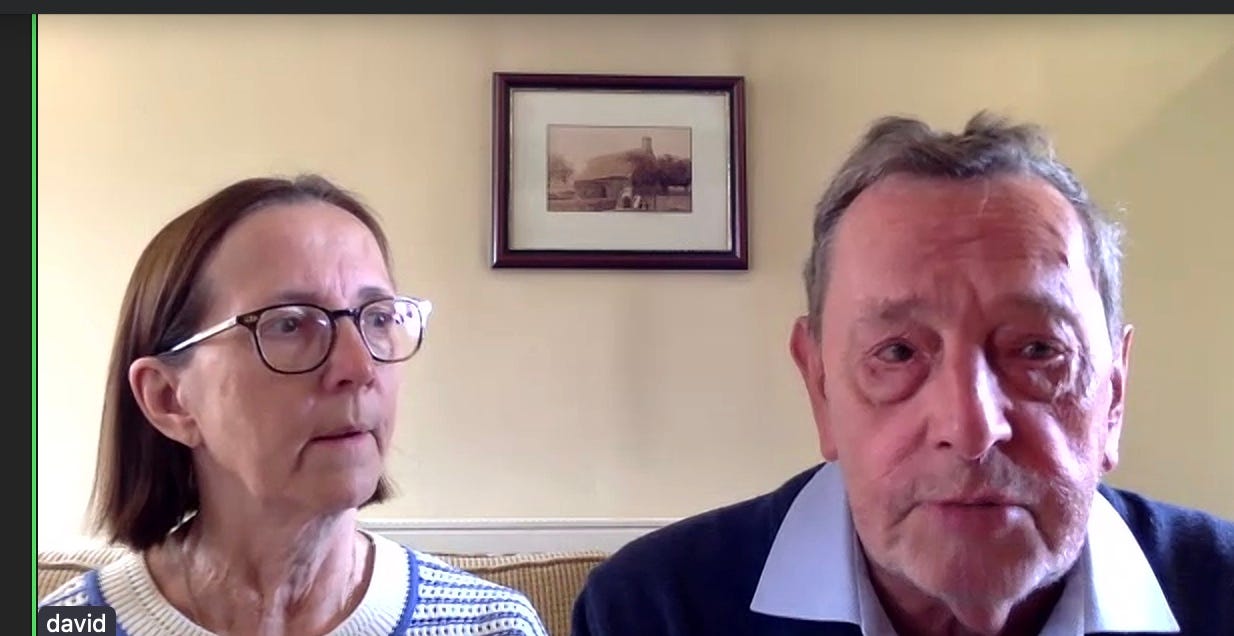When someone with Parkinson’s gets on a plane, a train or a bus they face two major challenges. Limited mobility may make it a struggle for them to keep pace with other passengers yet often their lack of a visible disability may result in a lack of sympathy from onlookers who know nothing about Parkinson’s.
Gillian Lacey-Solymar recounts just such an experience in this week’s episode of Movers and Shakers which is devoted to travelling with Parkinson’s. The problem Gillian faces is that one moment she can look perfectly healthy - indeed fit enough to ski down a mountain - the next she is incapable of movement.
That is how she found herself recently when checking in for an Easyjet flight. She got separated from her husband who had her ticket but when she explained this to the woman checking boarding passes she was told she must go and get it:
“My tremor had taken off so badly I was sitting there trembling, and she was still yelling at me, go and get your ticket. And I said, I can't….”
As the standoff continued Gillian’s stress levels rose:
“By then the whole plane was looking around, thinking, why is this woman being screamed at? And why can't she go?”
Many passengers encouraged her to make a formal complaint but after weeks without a satisfactory response it was only an email to the chief executive that got things moving.
Despite that experience, Gillian enjoys travel and has found most airline staff extremely helpful. She and Mark Mardell point to the assistance programmes most airlines and train companies have for disabled people.
“One of the keys to traveling successfully with Parkinson’s is just accepting that you are disabled,” says Mark. “I've only just done that recently, and once you get over that hump and ask for help, I’ve found there's lots of it available.”
To guide us through the practicalities of getting help and complaining when it doesn’t materialise we have Britain’s most seasoned traveller Simon Calder, the travel correspondent of the Independent. He says the law is relatively clear on the obligation of transport companies to make their services accessible to disabled people but that doesn’t mean it always happens:
“The evidence from disabled people shows there's still a very substantial gap between the rights and obligations that exist in theory and the daily experience of people who rely on pavements, buses, taxis, trains and planes to get to work, to access services or for leisure.”
We also recorded an interview with Lord David Blunkett, the politician who has been blind since birth and so has long experience of travelling with a disability. He was joined by his wife Margaret, a retired GP who was recently diagnosed with Parkinson’s.
Lord Blunkett told us a major part of the problem was working out just who among the transport providers was responsible for disability assistance - was it for instance the airport or the airline you had to contact before travelling? Things had got a bit better on the railway -“on Network Rail, you can book services in advance with some hope that you might actually get them.” But travelling on the London Underground where he had suffered a serious leg injury last October remained a “nightmare”.
But he is optimistic that things can improve, pointing out that better assistance policies can improve the overall custoomer experience:
“The whole purpose is to make the journey, not only for those who need assistance but for everyone, much more acceptable because if you get it right for people who need some form of assistance, you're going to get it improved for everyone else at the same time.”
We also learn how important it is for travellers to be upfront about their Parkinson’s when booking their travel insurance. Simon Calder explains that if anything happens that could be attributed to Parkinson’s - say you have a bad fall while skiing - you could find your medical costs are not covered if you have not told the insurer about your condition.
If you are honest, however, you could face huge premiums and that may make the cost of travelling to countries which do not offer foreigners free or cheap access to public healthcare, as EU countries still do despite Brexit, prohibitive:
“Increasingly, a lot of people, particularly older travelers, will find that the cost of the holiday is less than the cost of the insurance they need, “ says Simon. “And rather than not go, they will say I'm only going to Spain, I am happy to go into their public hospital if I need to. I won't need all the baggage insurance and so on, and I don't need an air ambulance home.”
But we are determined to end the discussion on a positive note. As Simon Calder puts it “travel is the industry of human happiness. It does wonderful things….It's a great success of the 21st century, and I just think it should be absolutely open and equally accessible to everyone.”
After 18 months without an overseas trip - our lovely but needy dog makes it difficult for me to get away - I recently took my wife to Venice for our 35th wedding anniversary. Making my way through airport security was a revelation and not in a good way - I learned just how much I had slowed down during the period I had not been travelling. I worried that Venice, where you inevitably find yourself walking long distances through narrow crowded streets and across bridges might prove too tiring.
In the event, it was wonderful long weekend in glorious weather and my smartwatch tells me that on each of our three days there we walked more than 10 kilometres. One day soon I shall get myself a walking stick, more as a visible signal of my Parkinson’s than anything else. Later, I will start using the assistance services to get on trains and planes. But the joy of travel is not something I - or I suspect any of my fellow Movers and Shakers - will give up without a fight.
Please continue to sign and share our petition calling for the implementation of the Parky Charter for better Parkinson’s care.





Great post, Rory. And what a nice way to celebrate an anniversary!
I have another neurological condition, Myasthenia Gravis, invisible but very unpredictable. I have had to swallow my pride and get a Sunflower lanyard and badge designed for all invisible disibilities . It is internationally recognised and helped me immediately in Copenhagen airport when security queues were lengthy. Apply on line and keep in your pocket, just in case !!